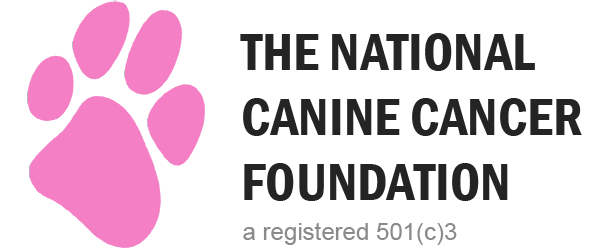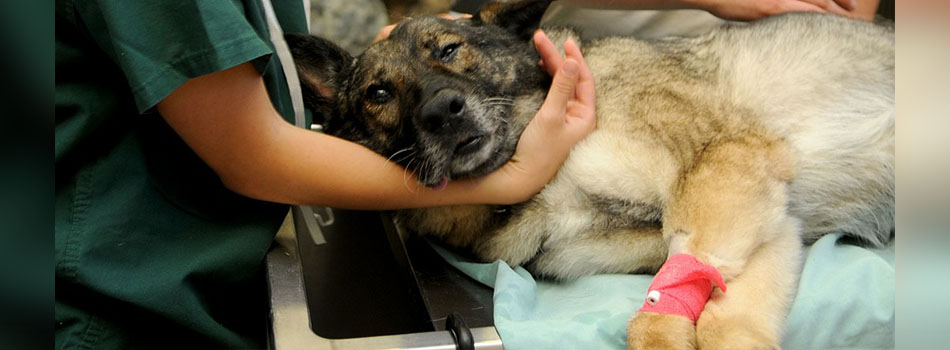UPDATE:
OncoK9 by PetDX is no longer available as of March 2024. The company is thought to have run into funding issues, but no official word is available.
Canine cancer is a constant worry for dog owners. There have been limited ways to screen for cancer in dogs. In the past, veterinarians have used methods such as fine needle aspirates (FNAs), radiographs, and routine blood work to determine whether a dog has cancer. While the latter goes a long way in determining your dog’s health, it is incredibly limited in its ability for canine cancer detection. This has left vets and pet owners at the mercy of cancer, which is usually difficult to detect until it’s too late. We are left with the question of how to detect cancer in dogs.
New cancer screening tests for dogs are now available. Nu.Q® and OncoK9™, developed by Volition and PetDx respectively, are nothing short of revolutionary. In this article, we will look at what makes each of these tests special. We also break down their differences and the full implications of this new technology for dog owners.
The Nu.Q® and OncoK9™ are both liquid biopsy cancer screening tests that have revolutionized the early detection of canine cancer; however, there are key differences between the two. We have outlined the six most important differences to note below.
- How do the screening tests work?
- What cancers are being tested for?
- How much blood is drawn?
- How long does it take to get results?
- How much does the screening cost?
- Should I screen my dog for cancer?
How do Nu.Q® & OncoK9™ Liquid Biopsy Cancer Screenings work?
The Nu.Q® test measures the nucleosomes in your dog’s blood. Nucleosomes are bead-like structures that contain DNA pieces wrapped around a histone octamer. When a dog has cancer, these nucleosomes from cancer cells are released into the bloodstream and can be detected using enzymes specific to nucleosomes.
On the other hand, OncoK9™ uses next-generation sequencing technology (NGS) and bioinformatics algorithms to “interrogate” millions of cell-free DNA (cfDNA) for alterations that indicate the presence of cancer.
What Cancers Do Liquid Biopsies Test For?
The Nu.Q® test detects 76% of systemic cancers. It can also pick up 77% of lymphomas, 82% of hemangiosarcoma, and 54% of histiocytic sarcomas. The latter is a very rare but incredibly aggressive cancer that develops when histiocytes – found in almost all organs of the body – begin to divide uncontrollably. For this reason, early diagnosis of this cancer is very difficult.
The OncoK9™ targets 62% of the eight most common cancers, and this number goes up to 85% for the most common cancers, i.e. lymphoma, hemangiosarcoma, and osteosarcoma.
These two tests bring about more options for dog owners in the area of canine cancer detection.
How much blood is drawn?
This is a liquid biopsy cancer screening, which is less invasive than a traditional biopsy. Drawing blood can make pet owners nervous but there is no need to worry. The Nu.Q® test only requires 2-5ml of blood. If you choose the OncoK9™ cancer test for dogs, your vet will likely draw about 14-17ml of blood. Though this is significantly higher, most dogs will not suffer adverse consequences.
How Long Does it Take to Get the Dog Cancer Screening Results?
The waiting that comes after the test is almost always the hardest part. Thankfully, you won’t have to wait long for the results of your Nu.Q® test, as they are usually available within 3-5 business days. The waiting period for the OncoK9™ test results can go up to 2 weeks.
How Much Do Liquid Biopsy Cancer Screenings Cost?
With all the above information, it’s pretty easy to guess which test is more affordable. The Nu.Q® test was designed with affordability in mind and costs $250 – $300, with a point-of-care test that costs $50. Most insurance companies will cover it but always check with your insurer first.
The OncoK9™ is a much more expensive test; quotes will vary between cities and vet facilities. In the rare event that test results are inconclusive, PetDx will test new samples at no extra cost. However, your vet office may charge additional fees for the collection of the new blood sample. Ask your vet how much you would need to pay for this test should your dog need it. Check with your insurer to see if this test for cancer in dogs is covered.
Should My Dog Get Screened For Cancer With Liquid Biopsy Test?
Dog cancer screening has been hit or miss. Adding chest x-rays, blood tests or ultrasounds to your annual exam are good ideas, but all of them can miss something that isn’t strong enough to see yet.
Volition and PetDx recommend that you include Nu.Q® and OncoK9™ in your annual wellness check if your dog is over seven years old. The OncoK9™ is also recommended as an aid-in-diagnosis for suspected canine cancer sufferers and is available by prescription only. Check with your vet to see if this new cancer screening test for dogs is now available at your clinic.
What Should I Do If Either Test Returns A Positive Result?
Both blood tests for cancer in dogs don’t offer a conclusive diagnosis. If results return positive, your vet will likely order more tests such as ultrasounds and chest films to establish a diagnosis and create a treatment plan.
Other Articles of Interest:
Proud to be a Non-Profit with Guidestar Silver Seal of Transparency
How To Help Pay For Your Dog Cancer Treatment Cost: 7 Fundraising Ideas
What To Expect If Your Dog Has Cancer | Advice From A Vet
Blood Banks For Dogs | Why & How Your Dog Can Donate
Probiotics For Dogs: Are They Beneficial?




My 7 year old weimaraner’s mother died from hemangiosarcoma. Her grandmother also died from it. Please send me the info on where to send the blood samples so she can be tested. How often should she be retested?
Valerie – you need to get the test from your vet
Is this new test available in Canada?
Yes, according to the Onco K-9 website, it is available for your vet to get for you.
How many dogs have been tested with OnkoK9? How often is it accurate in recent months? I’ve had 2 dogs suspected of bone cancer undergo this test and both tests were negative. Is it possible that the test is not as good as you would have us believe? Have they updated their actual stats to show the false negatives? It’s concerning that this test is being spoken of as being better than FNA and the other methods prior to these newer tests, when both times I have used it, it was negative, when my dogs were already experiencing symptoms and their xrays were suspected to have cancer. I contacted OnkoK9, after the first negative test, but they didn’t ask for info.